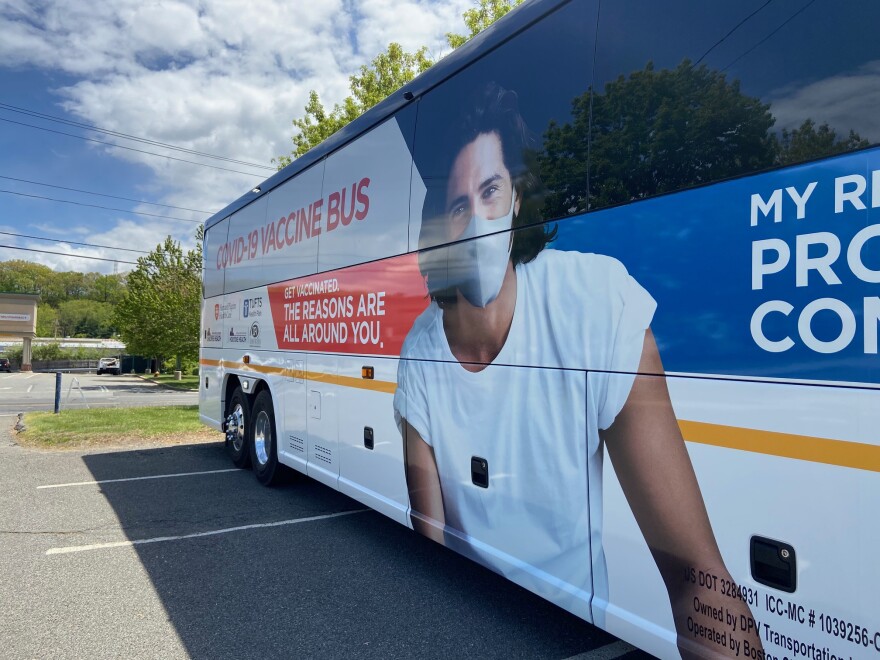This weekend, nearly all COVID-19 safety restrictions will be lifted in Massachusetts. That includes mask requirements — at least for people who are vaccinated.
Springfield Mayor Domenic Sarno said people who want to keep wearing masks should feel free to do so.
“You should not be ostracized for that, if you have any underlying health condition,” Sarno said Monday. “So please, public, be respectful of that as we move to get everybody vaccinated.”
Of course, not everyone will be vaccinated — and there are huge chunks of the population who are not. The state is "advising" them to keep wearing masks.
Panelist Matt Szafranski said he isn’t “too, too worried” there will be a surge of people abusing the relaxed rules.
“There’s some evidence that people that were likely to not wear a mask before the mandate fell were already not doing so,” he said. “Enforcement of the mask mandate was always falling, probably for months already.”
Panelist Natalia Muñoz said she will continue to wear a mask.
“And I appreciate when I see other people wearing masks — indoors,” she said. “Outdoors? Sure, whatever you want.”
Tied in with this discussion are vaccine rates. Hampden County has the lowest rate in Massachusetts, and there are huge racial and ethnic disparities. In Springfield, the rate for Black residents is about half that of whites. And it's even lower for Latinos.
Mobile vaccination clinics have popped up, and the state made a push for home visits. Muñoz said it’s going to take more than that, and noted the racial disparity exists across the country.
“They’re trying to fix a centuries-old problem, a legacy of racism, in just a few commercials,” she said. “How do you convince entire communities [to] trust the government, when it’s been the very government over centuries that has systematically oppressed them?”
Muñoz suggested officials answer “the people’s concerns directly, not just say, ‘Because it’s good for you.’”
Szafranski said while it’s true the disparities exist across the country, he put some of the blame on Hampden County’s low rates on state government.
“I think Massachusetts was a bit haphazard and was looking to boost the [overall] numbers of people it was actually vaccinating early,” he said. “There was too much emphasis on mass vaccination sites when it could have tried to get into some of those communities of color earlier.”
Also this week, the acting mayor of Holyoke, Terry Murphy, rescinded an executive order by former Mayor Alex Morse, which declared racism and police violence to be public health concerns and pushed to create a police advisory committee.
There was also a lot of news about the Holyoke Soldiers’ Home, site of a major COVID-19 outbreak last year. Baker and his health secretary took heat in a Boston Globe investigation for their lack of oversight before the virus hit the state-run facility. Lawmakers on a special committee also unveiled their report on the tragedy, calling for big governance changes at the Soldiers’ Home. And Baker signed most of a bond bill to fund a new facility.
Guests:
- Natalia Muñoz, host, Vaya Con Muñoz on WHMP
- Matt Szafranski, editor, Western Mass. Politics and Insight





